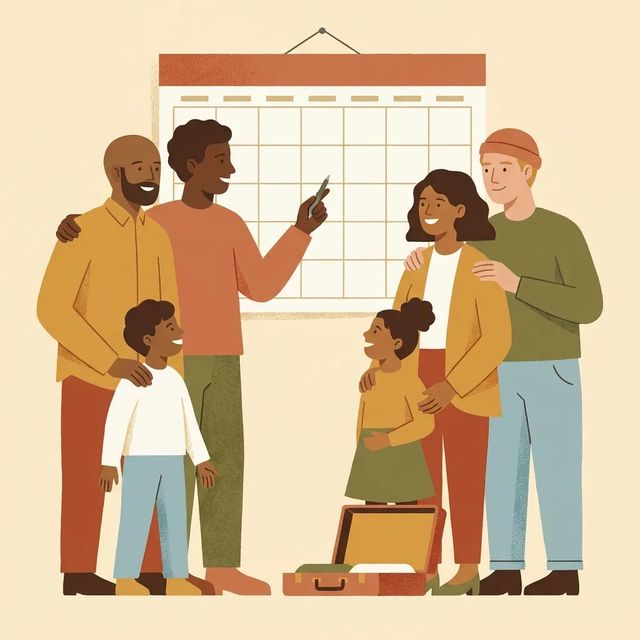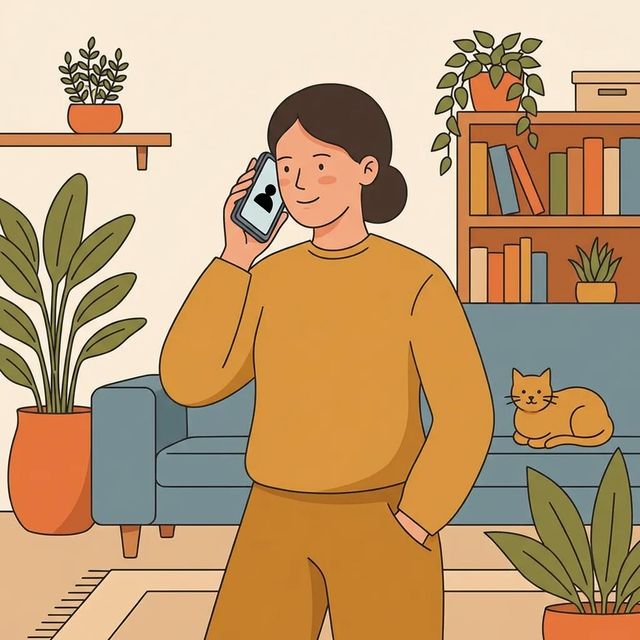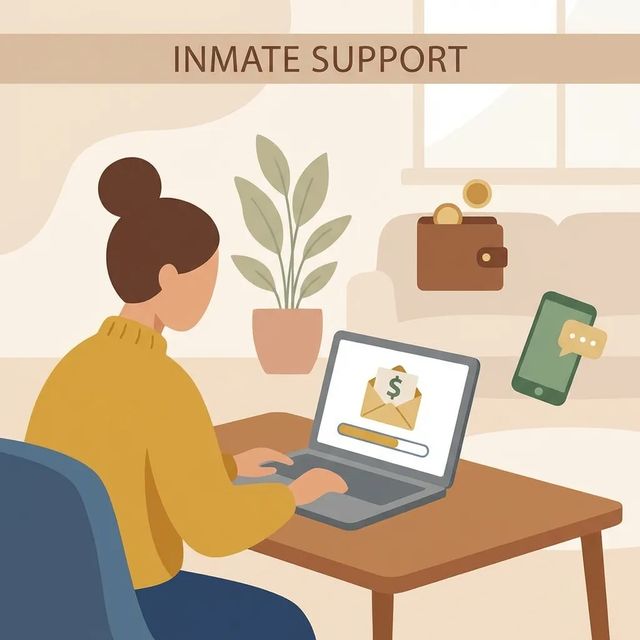Atoka County Jail
Explore
Find an Inmate at Atoka County Jail
Search for a loved one and send messages and photos in minutes.

Guides for This Facility

How to Visit Atoka County Jail (OK)
Visiting Atoka County Jail takes some planning. The jail's published information contains conflicting hours and visit-length details, so confirm the current schedule before you go.
Read Guide
How to Contact an Inmate at Atoka County Jail (OK)
Getting in touch with someone at Atoka County Jail mostly comes down to phone calls. Here's what you need to know, what to do, and what to confirm before setting anything up.
Read Guide
How to Send Money to Atoka County Jail (OK)
Atoka County Jail offers a few approved ways to add money to an inmate's account. Timing matters if you want funds available for commissary.
Read GuideAt a Glance
Visitation
- One Atoka County source lists weekend visits as female 8:00 AM–11:00 AM and male 1:00 PM–4:00 PM.
- A different Atoka County FAQ states visits must be booked and last 15 minutes.
- Visitors must be at least 18 or accompanied by a guardian and present a valid government-issued photo ID.
Communication
- Outgoing calls from Atoka County Jail are billed to the call recipient (collect calls).
- Inmate calls are monitored and recorded; attorney-privileged calls are not recorded.
- Global Tel Link (GTL) is the telephone service provider used for correctional facilities in Oklahoma and supplies customer/billing information callers may see.
Sending Money
- Atoka County Jail accepts deposits online via JailATM, at an in-person kiosk during visitation, by money order, or by phone.
- To post bond you can pay the full amount in cash or use a bail bondsman who typically charges a non‑refundable fee (usually 10% of the bond).
- Deposited funds are held in the inmate’s trust/commissary account to pay for commissary items, phone/video calls, and certain fees.
Based on official sources and community feedback. Learn how we verify
Topic Overviews
Visitation
Visiting at Atoka County Jail takes some planning, and published schedules differ by source. One lists weekend, gender-separated visiting blocks (female 8:00 AM to 11:00 AM; male 1:00 PM to 4:00 PM), while another shows broader weekday and weekend hours with visits booked in advance and limited to 15 minutes. All visitors need a valid government-issued photo ID. Minors must be accompanied by a guardian with proper documentation. Expect searches, and leave personal items like cell phones, purses, bags, food, and drinks outside. Dress conservatively: no sleeveless shirts, and shorts, skirts, and dresses must be knee-length or longer. Visitors 18 and older must submit a Visitor Application Form and pass a background check, which can take up to eight weeks.
Read full guideCommunication
Atoka County Jail allows inmates to place outgoing calls only. These are typically collect calls billed to the person who answers or accepts the charges. For security, calls are monitored and recorded (attorney-privileged calls are excluded). In Oklahoma, phone service for correctional facilities is commonly handled by third-party vendors, so you may see Global Tel Link (GTL) on your billing. To receive calls, you'll usually need to create an account with the facility's approved vendor, select the correct facility and inmate, and register your phone number. Check the vendor site or the "How to Contact an Inmate at Atoka County Jail" guide for current steps.
Read full guideSending Money
The jail lists four ways to send money: online through JailATM, an in-person kiosk during visitation, money orders, and deposits by phone. Deposited funds go into the inmate's trust or commissary account for commissary purchases, phone or video calls, and certain facility fees. Kiosks and online portals commonly accept credit and debit cards. Many facilities also accept mailed money orders or cashier's checks, so confirm accepted options before sending anything. To post bond, you can pay the full amount in cash at the facility or use a bail bondsman, who typically charges a non-refundable fee (usually about 10% of the bond).
Read full guideCommon Questions
Showing 6 of 9What are the visiting hours at Atoka County Jail?
Two county sources list different visitation schedules. One lists weekend, gender-separated blocks (female 8:00 AM–11:00 AM; male 1:00 PM–4:00 PM), and another lists weekday hours 7:30 AM–9:30 PM and weekend hours 7:30 AM–2:30 PM, with visits booked in advance and limited to 15 minutes.
VisitationWhat ID and age requirements do visitors to Atoka County Jail need?
Visitors must be at least 18, or minors must be accompanied by a guardian. Everyone needs a valid government-issued photo ID, and minors may need documents like a birth certificate or court papers to confirm guardianship.
VisitationHow do I get approved to visit someone at Atoka County Jail and how long does approval take?
Submit a Visitor Application Form through the ODOC visitation process. Visitors 18 and older undergo a background check, and approval can take up to eight weeks. The inmate gets notified when it's complete.
VisitationHow do I receive calls from an inmate at Atoka County Jail?
Calls from Atoka County Jail are outgoing only and billed as collect calls to the person who accepts them. You may need to set up an account with the facility's approved vendor and register your phone number before receiving calls. Calls are monitored and recorded except for attorney-privileged conversations.
CommunicationAre phone calls from Atoka County Jail monitored or recorded?
Yes. Inmate calls are monitored and recorded for security purposes, and attorney-privileged calls are excluded from monitoring.
CommunicationWho handles inmate phone billing for Oklahoma facilities like Atoka County Jail?
Many Oklahoma correctional facilities use Global Tel Link (GTL) for telephone service, so you may see GTL on billing and customer information. Confirm the current vendor and any required account setup on the facility or vendor website before accepting calls.
CommunicationMore Guides
Ready to Connect?
Search for your loved one to start communicating today
Did You Know?
Atoka County Jail maintains an online roster updated daily. Check it to see who's currently in custody.
This guide is compiled from official facility documentation and community feedback. Learn how we verify
